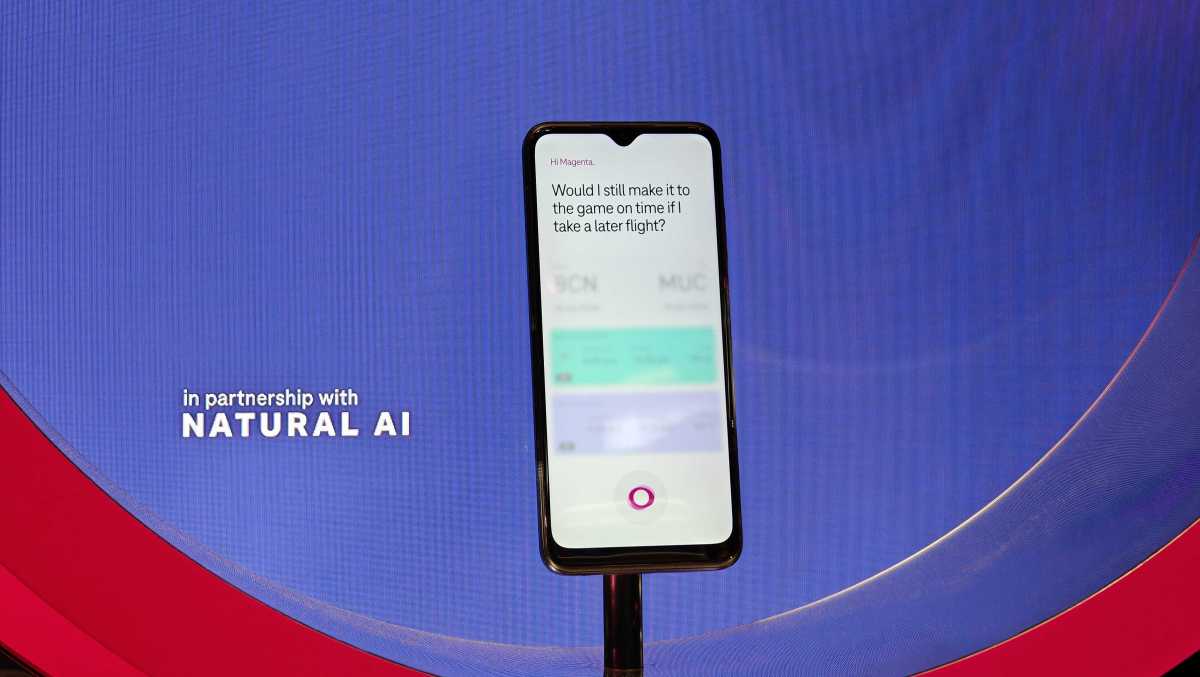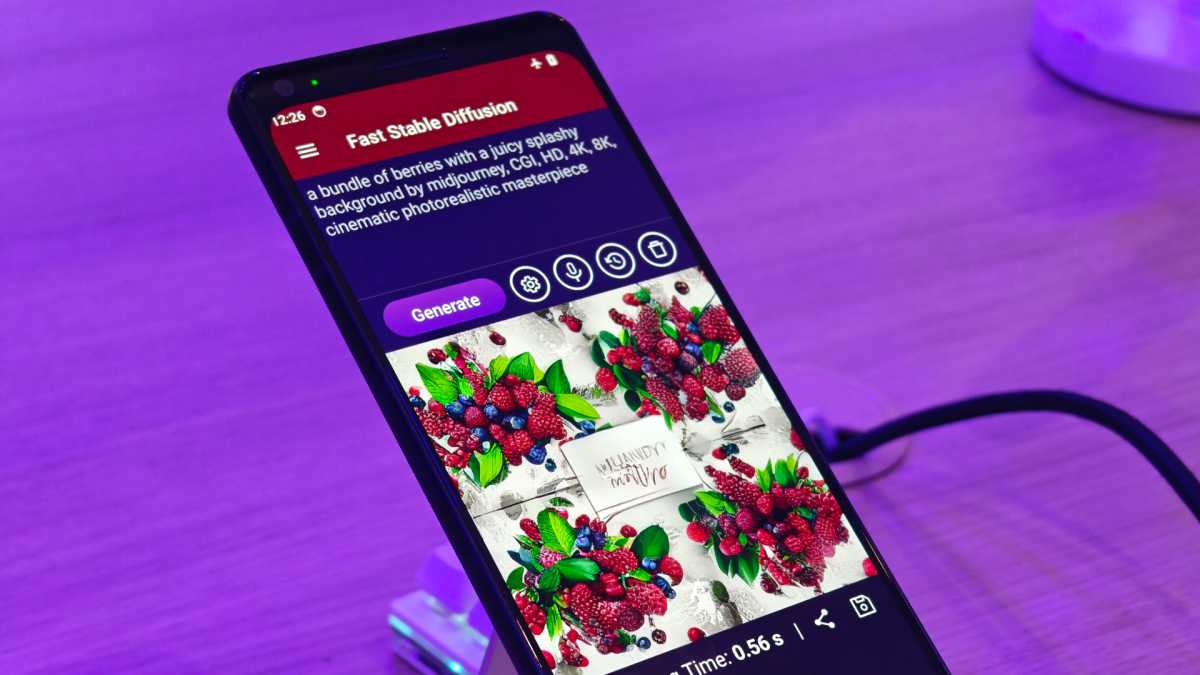I’m now on my fourth day of MWC, and I’ve heard the term ‘AI’ so much that I’ll be muttering it in my sleep. One thing is clear though: developers are hell-bent on making this technology a part of our future.
Deutsche Telekom was one of the brands that went hard this year, showcasing a concept phone that ran solely on generative AI, without any apps. This model was developed in partnership with Qualcomm and Brain.ai.
Deutsche Telekom CEO Tim Höttges is firmly behind the idea, claiming “I can tell you that in 5-10 years from now, nobody from us will use apps anymore” to Reuters.
Confused? Let me explain.
The idea is that the phone would use LLM (Large Language Models) to cut down on many of the steps you’d need to perform an action. For example, if you wanted to book a flight for a football game abroad on your phone, you’d normally open an app or web browser, search for the location and time, and then filter through the airlines to find what’s suitable for you.
This concept model (which runs on the Snapdragon 8 Gen 3 chip), showed someone asking the phone to book a flight using natural language, such as “Book me a flight to the quarter-finals”. It would do this whole process on the home interface, filtering through to find the best option. Additional voice prompts could then narrow down the results even further.

Hannah Cowton / Foundry
It’s not just purchases that the company sees this phone working for. The official press release states that it can also be used for messaging, editing photos, and watching videos. In a nutshell, it’s like using Siri or Google Assistant, but without using any additional apps. The interface appears to be based on the Natural iOS app from Brain.ai.
It seems simple when you put it like that, but I already foresee so many hiccups here.
Privacy is the biggest concern. Online banking apps have secure encryption, so you have peace of mind knowing that your data is safe. How would a phone without individual apps be able to do the same? Similar sentiments can be applied to things such as WhatsApp, which offers end-to-end encryption as standard.
Using your voice to control everything isn’t exactly private, either. I for one wouldn’t want to blurt out any sensitive information on the bus where all the nosy strangers can hear. And maybe it’s just the writer in me, but I prefer to type rather than use voice commands.
Then there’s social media, a whole enterprise built on experiences that vary hugely depending on user interests: TikTok, Instagram, Twitter, and even LinkedIn (yes, influencers for that platform exist, and if you don’t know them, that’s probably a good thing).
It’s unclear how this side of the internet would work on an app-less phone. Would you be able to use voice commands to post to the platforms anyway, or is there a world where these platforms don’t exist at all, or there’s just one singular place for all activity?
In some ways, that sounds like bliss. But, when entire social lives and careers rest on a lot of these platforms, it seems like a radical move.
The same goes for everyone working in app development. Are we moving towards a world where these jobs are completely redundant? If so, we’re talking about huge ramifications for millions of people across the world. I just don’t see that happening, especially when software and apps dictate many people’s decisions on which smartphones to buy in the first place.
Gen AI is of course already here on smartphones. Both Qualcomm and MediaTek had handsets with on-device generative AI software to hand. Below is an example of a Snapdragon phone using Fast Stable Diffusion to generate an image in a mere matter of seconds, all without relying on the internet-based cloud:

Hannah Cowton / Foundry
On-device AI is more secure than those that use the cloud to generate information, and that’s fine for asking for a stupid photo of a cat eating a pizza. But an app-less phone would surely rely on connecting to the online sphere to perform transactional tasks, which rings alarm bells.
In the race to be the top dog in AI, companies are bypassing many important factors. OpenAI is being sued by The New York Times for copyright infringement when training ChatGPT bots, while ElevenLabs technology is being used to create voice replicas of President Biden to spread false information ahead of the US elections (as per Bloomberg).
It’s intriguing to see what could be possible, but privacy and security should always be the top consideration when thinking about our technological future. We’re already in muddy waters with AI, and I can’t see how an app-less phone would help solve these issues or enrich my day-to-day life.
